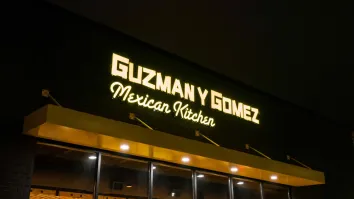
Why enterprise bargaining offers little opportunity for the QSR sector
By Steve Champion With Federal Government Industrial Relations policy coming increasingly under the spotlight, QSR Media asked regular contributor, Steve Champion, Director of employee relations consultancy ER Strategies, to explain what opportunities and limitations existed in relation to enterprise agreements under the Fair Work Act.
Champion replied that, in his view, there was little logical scope for QSR operators to want to enter into enterprise agreements. “The first and biggest hurdle is that an enterprise agreement must leave every employee ‘better-off-overall’ than the award. This BOOT test is primarily a financial test. So any agreement is most likely going to cost the operator more than the award.
“With wage costs already on the increase due to the introduction of the ‘modernised’ fast food and restaurant industry awards, who would want to pay more than they have to already?”
“Any agreement will need to be voted on by your employees, then lodged with Fair Work Australia for checking before approval. They (FWA) will run it through their spreadsheet calculators to make sure that all employees are better off.”
He gave examples of employees who only wanted to work on weekends, perhaps because of school or uni commitments. “An enterprise agreement that paid a higher base rate for all hours worked, but reduced penalty rates for nights and weekends, must then leave that employee technically worse off than the award, because they would have earned more under the award.”
To get such an agreement approved – “most operators who call us are after such an agreement” says Champion - would depend on the particular FWA Commissioner considering the agreement either taking a liberal approach to the legislation, or requiring the operator to provide a legally binding undertaking that particular employees working only on weekends would have their rates increased to compensate, adding to the cost of the agreement.
“Unfortunately, a number of the Commissioners are anything but liberal. It took the might of McDonalds, with the full support of the head of the industry union, Joe de Bruyn of the SDA, to win its appeal against its own enterprise agreement being rejected. Not every QSR employer has that sort of financial backing, and many would prefer not to deal with a union to begin with.”
Some areas where QSR operators could save money under an agreement would be to reach agreement for more flexible part-time conditions than under the award. “At present under modern awards, on engagement every part-time employee must have their work days, start and finish times, meal breaks and weekly hours, agreed in writing. Any change to these hours must also be agreed in writing, otherwise overtime rates are payable.
“Under an enterprise agreement, an employer might agree to more flexible part-time arrangements. Compared to the 25% casual loading that will eventually be payable across the country, there is plenty of opportunity to save money by employing more flexible part-time workers. When you add the cost of annual leave (around 9%) and personal leave (around 2-4%), then a part-timer might only cost you an equivalent loading of 12-13%, compared to 25% for a casual.
“Sure, many employers will consider that casuals are more reliable because they don’t get paid if they don’t turn up for work. However, part-time employment might also be a way of rewarding your better staff members who are reliable, or bridging their transition towards supervisory roles as they get older and their wage rate increases.”
“The new awards will force many QSR employers to rethink their approach to their businesses. Otherwise, they might not be able to survive the transition at all.”
Steve Champion, Director, Employee Relations Strategies Pty Ltd
ER Strategies has a website at www.erstrategies.com.au


























